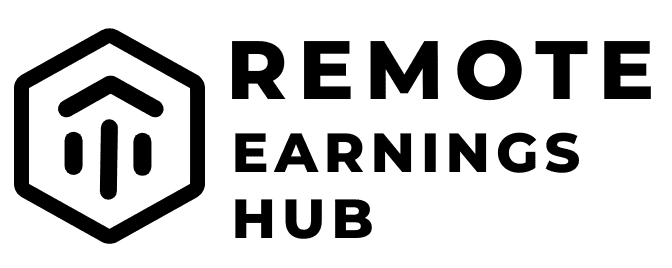Are you sitting at your desk, daydreaming about being your own boss? You’re not alone. Every successful business started with that same spark of entrepreneurial spirit. This comprehensive guide will walk you through the exact steps needed to turn your business dream into reality.
According to the U.S. Small Business Administration, over 600,000 new businesses open each year in America. While this number is encouraging, preparation is key – research from SCORE shows that businesses with detailed plans are 30% more likely to grow.
Pre-Planning Phase
Before diving into the paperwork and logistics, let’s assess if entrepreneurship aligns with your goals and capabilities.
Self-Assessment Checklist
- [ ] Define your motivation for starting a business
- [ ] Evaluate your risk tolerance
- [ ] Assess your financial situation
- [ ] List your skills and expertise
- [ ] Identify areas where you’ll need support
Expert Tip: “The most successful entrepreneurs I’ve mentored didn’t just have a great idea – they had the self-awareness to know their strengths and weaknesses before starting,” says Sarah Chen, founder of Beyond Ventures and business advisor.
Market Research Fundamentals
Your brilliant idea needs validation. Here’s how to research your market:
- Identify your target audience
- Study competitor offerings
- Analyze market trends
- Conduct customer interviews
- Test your concept
Success Story Spotlight:
When Michelle Rodriguez started her mobile pet grooming service in 2022, she spent three months interviewing pet owners and local veterinarians. This research helped her identify an underserved niche: luxury pet care for busy professionals.
Initial Budget Planning
Let’s talk money. Here’s a typical startup cost breakdown:
| Expense Category | Low Range | High Range |
|---|---|---|
| Legal Fees | $500 | $2,000 |
| Licenses/Permits | $200 | $1,000 |
| Equipment | $2,000 | $25,000 |
| Insurance | $500 | $3,000 |
| Marketing | $1,000 | $5,000 |
| Location/Rent | $1,000/month | $5,000/month |
| Website | $500 | $5,000 |
| Initial Inventory | $2,000 | $20,000 |
Building Your Business Foundation
Choosing Your Business Structure is an important step. Your business structure affects everything from taxes to personal liability. Here are your main options:
Sole Proprietorship
- Simplest structure
- Complete control
- Personal liability risk
- Self-employment tax
Limited Liability Company (LLC)
- Personal asset protection
- Tax flexibility
- Less paperwork than corporations
- More credibility with clients
Corporation
- Maximum legal protection
- Easier to raise capital
- Complex tax rules
- More regulatory requirements
Always consult with a qualified attorney or tax professional when selecting your business structure.
Registration and Compliance
Essential Steps:
- Choose your business name
- Register with state authorities
- Obtain an EIN from the IRS
- Apply for necessary licenses
- Set up business banking
- Register for state/local taxes
Resource Link: Small Business Administration Registration Guide
Creating Your Business Plan
A solid business plan is your roadmap to success. According to the Harvard Business Review, entrepreneurs with written business plans are 16% more likely to achieve viability.
Business Plan Template
Executive Summary
- Business concept
- Market opportunity
- Competitive advantage
- Financial highlights
Market Analysis
- Industry overview
- Target market definition
- Competitor analysis
- Market share potential
Operations Plan
- Location details
- Equipment needs
- Supply chain
- Quality control
Financial Projections
- Startup costs
- Revenue forecasts
- Break-even analysis
- Cash flow projections
Expert Insight: “The most common mistake I see in business plans is unrealistic financial projections,” notes Marcus Thompson, small business consultant. “Be conservative in your estimates and have data to back up your numbers.”
Setting Up Operations
Location Considerations
- Customer accessibility
- Parking availability
- Lease terms
- Zoning requirements
- Growth potential
Technology Infrastructure
- Point of sale system
- Accounting software
- Customer relationship management
- Cybersecurity measures
- Communication tools
Hiring Your Team
- Job descriptions
- Recruitment channels
- Interview process
- Training programs
- Employment laws
Marketing Your Business
Digital Presence Essentials
- Professional website
- Google My Business listing
- Social media profiles
- Email marketing system
- Online review management
Brand Development
- Logo design
- Color scheme
- Brand voice
- Value proposition
- Brand guidelines
Common Pitfalls and Solutions
- Insufficient Capital
- Solution: Maintain 6-12 months of operating expenses in reserve
- Consider multiple funding sources
- Create detailed financial projections
- Poor Market Research
- Solution: Conduct thorough competitor analysis
- Get customer feedback before launch
- Test your concept in small ways
- Lack of Planning
- Solution: Create detailed business and marketing plans
- Set measurable goals
- Establish clear milestones
Taking Action: Your Next Steps
- Download our free startup checklist
- Create your business plan
- Register for our newsletter
- Join our entrepreneur community
FAQ Section
Q: How much money do I need to start a business?
A: The amount varies significantly by industry and scale. The SBA reports that most micro-businesses can start with $3,000-$5,000, while the average small business requires about $30,000.
Q: How long does it take to make a profit?
A: According to Fundera, most small businesses take 2-3 years to become profitable. However, this varies greatly by industry and business model.
Q: Do I need a business plan if I’m not seeking funding?
A: Yes! Business plans aren’t just for investors – they help you clarify your strategy, set goals, and identify potential problems before they arise.
Starting a business is a journey of a thousand steps, but each one brings you closer to your dreams of entrepreneurship. Remember, every successful business owner started exactly where you are now.
Disclaimer: This guide provides general information for educational purposes only. Please consult with qualified legal and financial professionals for advice specific to your situation.

